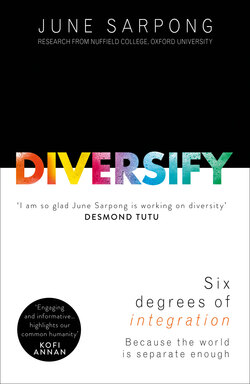Читать книгу Diversify - June Sarpong - Страница 17
ОглавлениеThe Old Way
In 1969, Congresswoman Shirley Chisholm delivered a powerfully emotive speech to the House of Representatives demanding ‘Equal Rights for Women’. She remarked:
The emotional, sexual, and psychological stereotyping of females begins when the doctor says: ‘It’s a girl.’ At present, our country needs women’s idealism and determination, perhaps more in politics than anywhere else.*
Heeding her own advice, three years later Chisholm would become the first woman to run for the Democratic Party’s presidential nomination, and the first African-American to run as a major party’s nomination for President of the United States.
It was 1972 and, alas, America was not yet ready for a woman, let alone a black woman as bold as she; her presidential bid was ridiculed, laughed at, and met with cynicism and disdain by most of the elite. But even so, Chisholm still managed to secure 151 delegates in the Democratic primaries. As a prominent member of both the civil rights and women’s movements, her courage and belief in the possibility of change helped pave the way for a Barack Obama and a Hillary Rodham Clinton. She most certainly lived up to her gutsy tagline of ‘Unbought and Unbossed’ – she famously espoused that ‘if they don’t give you a seat at the table then bring a folding chair’ – but Chisholm was the exception and, unfortunately, her remarks are still as relevant today as they were in 1969. Because it’s true that when a child is born and the doctor says, ‘It’s a girl’, that tiny, innocent miracle already has the odds stacked against her and will have to play on a field that most certainly isn’t level.
Women are the largest oppressed group in the world, and the degrees of subjugation vary from country to country, with women in the West faring much better than their counterparts in developing parts of the world. In their 2008 Pulitzer Prize-winning book Half the Sky: Turning Oppression into Opportunity for Women Worldwide, Nicholas Kristof and his wife, Sheryl WuDunn, argue that: ‘In the nineteenth century, the central moral challenge was slavery. In the twentieth century, it was the battle against totalitarianism. We believe that in this century the paramount moral challenge will be the struggle for gender equality around the world.’ A struggle it may be, but it’s one that will be 100 per cent worth it, given the rewards that are to be won. So, in this section, I will challenge the idea of women as ‘other’, and argue that the results – personal, cultural, and economic – of diversifying gender will be spectacularly beneficial, for women, for men, and for society as a whole.
